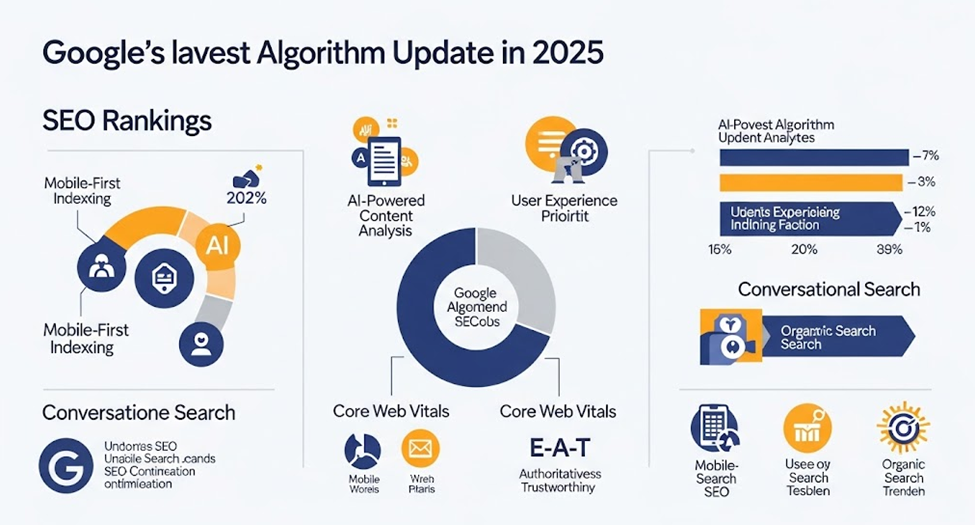Google’s recent algorithm updates, including those in 2024 and 2025, emphasize E-A-T (Experience, Expertise, Authoritativeness, and Trustworthiness) and content quality as critical factors for ranking, especially for travel sites. To navigate these updates effectively, travel websites must focus on producing in-depth, original, and user-centric content that demonstrates clear expertise and trustworthiness, while avoiding spammy or manipulative SEO tactics.
Key points for travel sites to consider:
-
E-A-T is central: Google rewards content that shows real experience and expertise, authoritative sources, and trustworthy information. For travel sites, this means providing accurate, comprehensive, and up-to-date travel information, such as official attraction details, airline data, and authentic hotel content.
-
Content quality over quantity: Recent updates favor fewer but more valuable, well-researched, and original articles rather than large volumes of thin or auto-generated content. This is especially important for hotels and travel bloggers competing for visibility.
-
User experience and usefulness: Google’s September 2025 update increased the weight of page usefulness, rewarding pages that help users complete their travel research or booking actions effectively. Mobile usability, structured data, and content freshness also play larger roles.
-
Avoid spam and manipulative tactics: Google’s ongoing spam updates target auto-generated content and manipulative affiliate marketing, which can lead to significant traffic drops if detected.
-
Regular core updates: Google is moving toward more frequent but smaller core updates, requiring travel sites to continuously monitor and optimize their content rather than relying on infrequent major overhauls.
Practical steps for travel sites:
- Ensure content is written or reviewed by travel experts with verifiable credentials or experience.
- Keep travel data (e.g., airline policies, hotel info) accurate and current.
- Use structured data markup to help Google understand your content better.
- Focus on creating comprehensive guides, detailed reviews, and authentic user experiences.
- Regularly audit and remove or improve thin or outdated content.
- Monitor SEO performance closely to respond quickly to algorithm changes.
By aligning with Google’s E-A-T principles and prioritizing high-quality, user-focused content, travel websites can improve their resilience and rankings amid ongoing algorithm updates.





